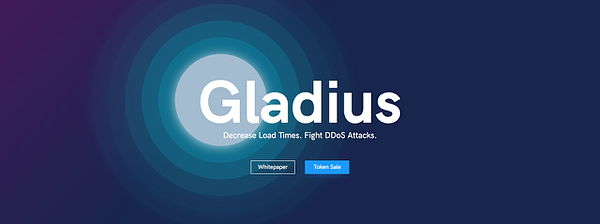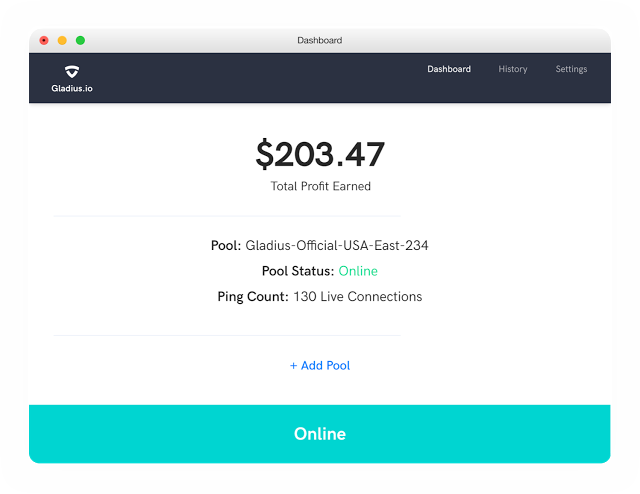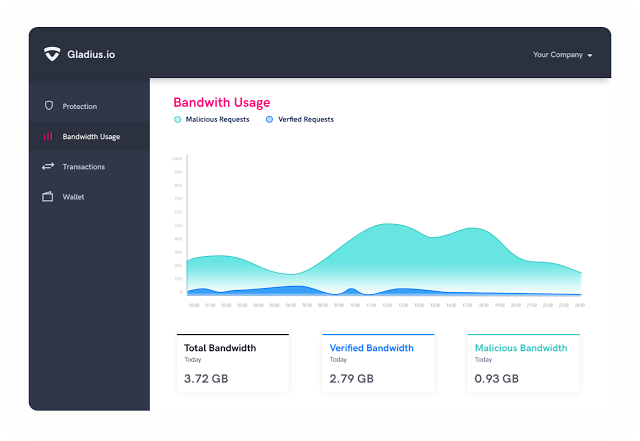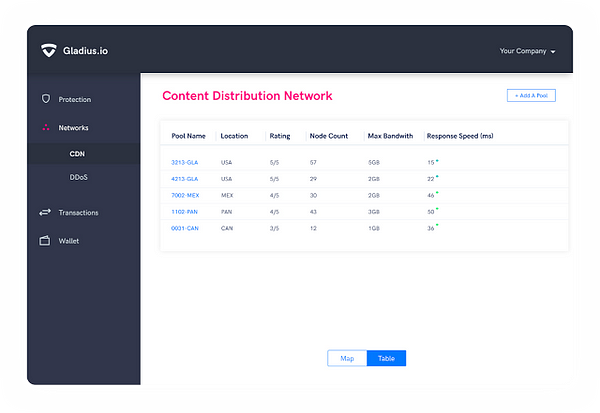
By utilizing blockchain to enable communication between computers, and pay as you go to the market, Gladius can facilitate the creation of a fault-tolerant and inexpensive pool tailored to the client's specific needs. In addition to filtering only traffic, this pool can also speed up the content.
Project Gladius
Since the beginning of the internet, the technology around the website has continued to grow. With this new technology comes the power to increase online presence online but also hurt it. Technology is really the two largest-edged swords. The Gladius mission is to eliminate losses caused by new vulnerabilities and utilize the same decentralized networking style that has been used by attackers for a long time. Gladius mainly deals with the protection of DDoS attackers and the application of high-quality CDN.
While there are many people who believe that DDoS protection is only necessary in very few situations, DDoS protection is important for entities that have a presence on the internet. DDoS attacks cost millions for household names like Blizzard Entertainment, BBC, and GitHub. The average DDoS attack cost the company 2.5 million dollars.
Every business wants to improve the speed of their site and also their response time. A well-done CDN can do not only that but also extend the reach of sites that offer unparalleled access in every corner of the world. The big profit CDN gives to businesses is easy to see by the fact that the CDN market by 2015 is worth $ 4.95 billion but is expected to more than triple by 2020 to $ 15.73 billion.
The ability to greatly, if not completely, eliminate DDoS attacks and the ability to create effective and secure CDNs makes the Gladius team in a unique position. The team's goal is to make full use of blockchain technology to counter DDoS attacks and provide competitive CDN services. However, most importantly, the Gladius team continues to strive toward a highly competitive marketplace to bring consumers the best service. This goal is always at the forefront of Gladius's mission to make business safer and more effective.
Introducing Gladius
Gladius's goal is to create a fully decentralized network of peer-to-peer network nodes to connect a bandwidth pool to a website that seeks DDoS protection and accelerated content delivery. Anyone with a computer can download and run Gladius peer clients in the background to lease unused bandwidth and get Gladius Tokens (GLA). Large pools with hundreds, if not thousands, nodes can then handle continuous streams of requests to validate website connections and block malicious activity.
The client node can be started on any Linux, Windows, or MacOS machine and will automatically run in the background when you select it. Users will be part of the local verification pool. Each user-modified site request will grant them a Gladius Token. In turn, users can sell this token back to the website to create an economic cycle that drives the growth of the Gladius Network.
Sites looking for protection can only create accounts on Gladius sites, get Gladius Tokens, then ask for the service in a matter of clicks. Once the website is part of the Gladius network, a direct request graph will be available to monitor connection, protection, and speed delta.
Gladius Desktop Client

Gladius Web Portal
Monitor attacks and bandwidth usage while gaining insight into your traffic. All portals are easy to use.

Gladius Network Pools

For this platform, Gladius will release Gladius Token, or GLA. The token bid will still be issued during Token Creation and the token will no longer exist.
GLA will be a key component to Gladius Network as it will be used by websites to purchase DDoS and CDN services. The majority of the fees will go to owner nodes (each renting their backup bandwidth) with a small fraction going back to development and protocol support. All fees will be denominated in GLA, which may change based on supply and demand.
The previously mentioned node owners who are part of the protection pool will basically act as miners and incentivized with GLA for their network support. Owners will be paid for their respective jobs in this official mining pool. Unlike typical blockchains, mining will be rewarded for sharing bandwidth rather than work evidence, and currency ownership (stock evidence).
Token is designed in such a way that it will likely reflect the growth of Gladius Network. In addition Gladius will see commissions for node owners in currencies other than GLA.
Details of Token Sales
Token Sales Schedule
November 1, 2017
Purchase Token
Etereum
Price Token
500 GLA / 1 ETH
Bonus
1% - 20%
Total Supply Token
96,320,000 GLA
Gladius Team
Jeremy Epstein - Marketing Advisor
Joseph Steinberg - Cyber Security Adviser
Max Niebylski - Founder & CEO
Michael Terpin - Public Relations Advisor
Frank Bonnet - Technical Advisor
Ori Levi - Marketing Manager
Mike Balagna - Marketing Communications Adviser
Hansco Leek - Operations Adviser
Alex Godwin - Co-Founder & Blockchain / Pools
Ruben Stranders - AI Advisor
Marcelo McAndrew - Founder & Developer Founder Backend
Konrad Seweryn -
Roi Dalal Web Developer - UX / UI Designer
Gladius Official Information:
OUR WEBSITE
MEDIUM
OUR TWITTER
FACEBOOK
TELEGRAM
ANNOUNCEMENT
Eth : 0xf1Aee635fb241e9668bE8d32Dd1AffA39Fc4a744
Komentar
Posting Komentar